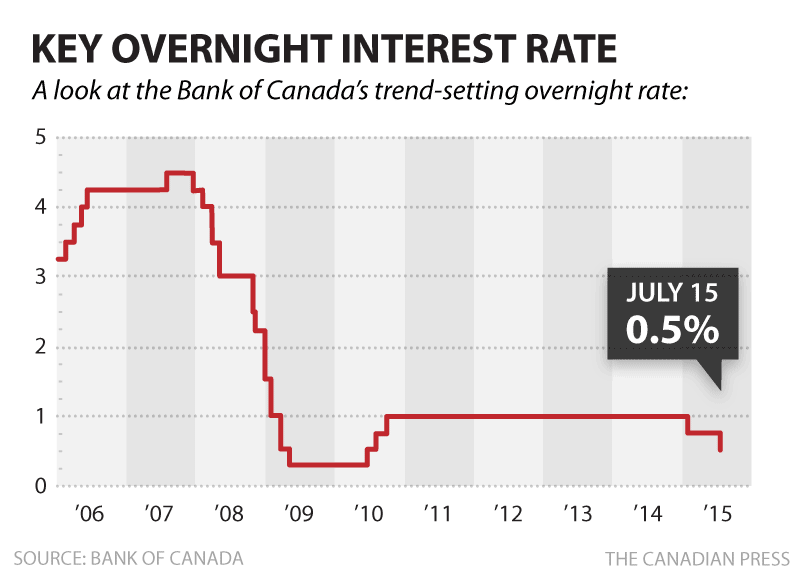The Bank of Canada announced today it is cutting its key interest rate by a quarter percentage-point to 0.5%, tracing the second interest rate cut of this year back to faltering global growth, disinflation and low prices for oil and other commodities.
In terms of the impact this will have on your real estate needs, keep in mind that as individuals, we don’t borrow from the Bank of Canada- banks do. Therefore, you won’t see the immediate impact of a lower interest rate to your mortgage payments and mortgage rates in the short-term. However, fluctuations of the interest rates do have long term impacts on the real estate market.
The big question is, what this rate cut means for home buyers, sellers, and Canada’s housing market?
Here is a simplified, macro perspective on the relationship between interest rates and mortgage rates:
When interest rates RISE
When interest rates rise, typically mortgage rates also rise. With higher mortgage rates, buyers characteristically aren’t able to afford as much, therefore, the real estate market will cool. This prompts a buyer’s market where sellers will reduce their prices to attract more buyers.
When interest rates DROP
Similarly, lower interest rates usually indicate lower mortgage rates. This suggests it is cheaper for buyers, investors, and developers alike to borrow money to make a real estate purchase. This stimulates demand, increases competition for real estate assets, and therefore creates more of a seller’s market. Not only do lower interest rates spur buying in the real estate market, but it also causes housing prices to rise, creating a profitable return on investment for those looking to sell.
Now that the interest rate has dropped…
Buying into a hot market in a potentially colder economy requires taking into consideration long term factors and prospects that may affect your ability to afford your home (job security, changes in infrastructure in your area etc). Also, consider how long you intend to spend in your home. If housing prices continue to rise, moving to a bigger home after just a few years could be costly if prices stagnate or fall after you buy. However, selling in a hot market often creates a balance for when buying in the current real estate market. The right time to buy is when you can truly afford it. Therefore, these are all factors you should review and consider with your Real Estate Agent and Mortgage Specialist before making the decision of whether it is the right time to move for you.








